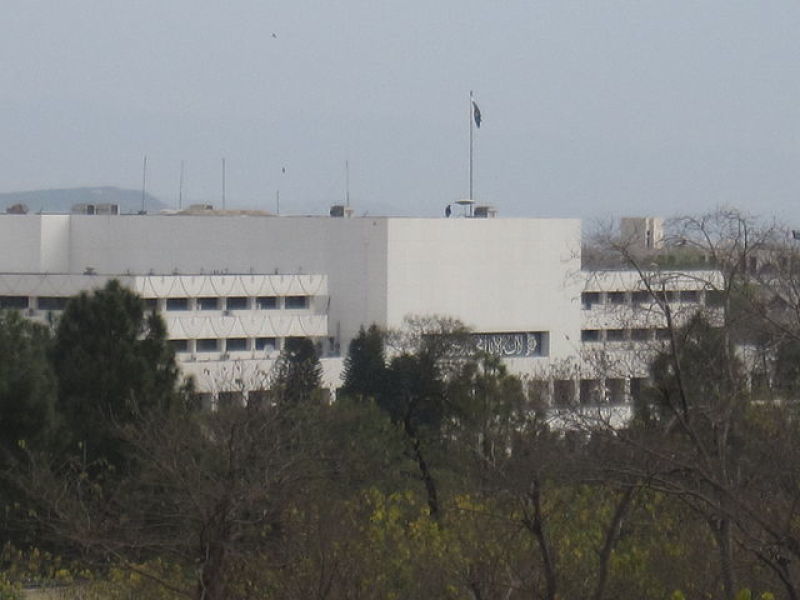
Pakistan agreed to the demands of protesters to not change the blasphemy laws of the country, after they staged a four-day protests in the nation's capital Islamabad, according to Geo News.
Thousands of members of a fundamentalist Islamic group, Sunni Tehreek, assembled near the parliament to protest a proposed amendment to the country's blasphemy laws, and to demand "martyrdom" status for the man who killed Punjab's governor Salman Taseer, who had advocated for reforms in the blasphemy laws.
The government said that laws will not be altered, which carry a death sentence for those accused of blasphemy. The officials promised the protesters that no leniency will be shown to those who commit blasphemy.
The government also agreed to another one of their seven-point demands to release hundreds of "innocent" Tehreek members arrested during the four-day protests, who were accused of damaging public property and injuring 42 security personnel and 16 civilians.
However, the government gave no assurance of "martyrdom" status for Taseer's assassin Mumtaz Qadri, who was also Taseer's bodyguard. He was executed this February. Immediate execution of Asia Bibi was also not promised by the government.
Taseer had urged the government to alter the laws, and had spoken up on behalf of Christian woman Asia Bibi, who even now remains on the death row.
Qadri killed Taseer in 2011, after he visited Asia Bibi in jail and promised a presidential pardon for her.
Other demands of the protesters which are being considered by the government included imposition of Sharia law, and controlling alleged indecency on media.
The appeal to impose Sharia law will be examined by the country's ministry of religious affairs, and the media-related complaints will be addressed by the Electronic Media Regulatory Authority.
The government was relieved at the peaceful resolution of the protests, but may face severe criticism from activists protesting against the blasphemy laws. The controversial laws were imposed by Pakistan's former military dictator Zia-ul Haq in the 1980s, and have triggered mob violence even over unproved allegations.
"We don't want any violence, but we can't tolerate it anymore," Interior Minister Chaudhry Nisar Ali Khan was quoted as saying by the Associated Press.
About 25,000 people, at their peak, had besieged the city of Islamabad, and over 7,000 were called in to clear them.

















